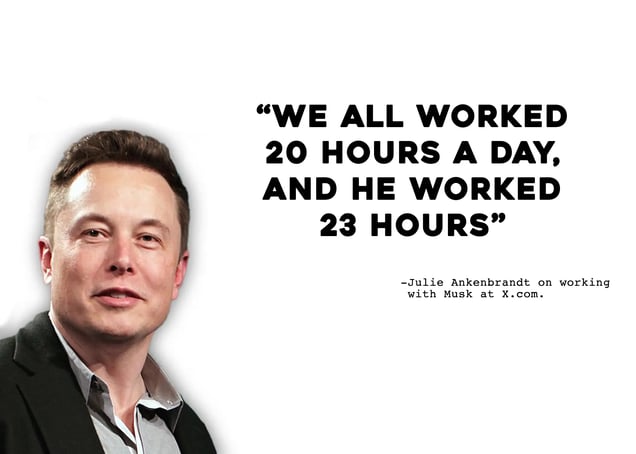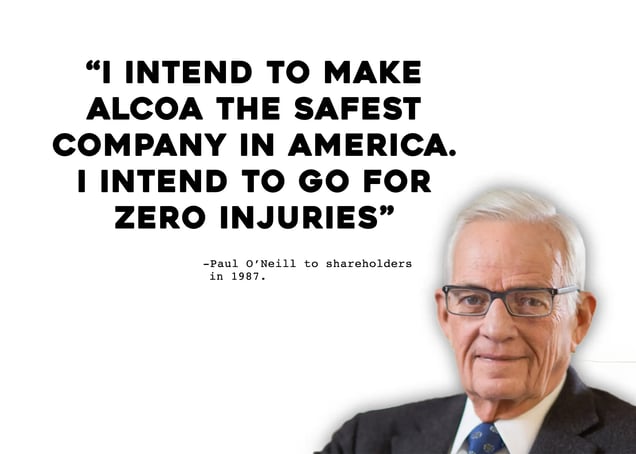| Sponsored by |  |
234 years ago, Ben Franklin sat naked in front of his window each morning in what he called “air baths.” He believed the cold air would cleanse his body and prevent illness.

More recently, Steve Jobs went weeks only eating carrots — reportedly turning slightly orange — — all because he heard they were healthy.
It’s no secret: The uber-successful often have uber-strange habits. And we, the legion of average, obsess over them. It’s only natural. We associate their accomplishments with things they do differently than everyone else. Because hey, if they were just like us, wouldn’t we be billionaires by now?

So, why do the most successful people have such odd and specific mannerisms? And what can us ‘normies’ learn from them?
As it turns out, these behaviors share one common principle: they’re keystone habits.
We’ll get to what all that means, but first, let’s take a walk down the corridor of the strange and successful and the eccentric habits they swore by.
Lifestyles of the strange and famous
Wildly successful people have been known for their wildly strange habits since prehistoric times (AKA pre-Silicon Valley).
Alongside Ben Franklin, John Quincy Adams also partook in early morning nakedness. His pleasure? A daily pre-dawn skinny dip in the Potomac.
Child-prodigy and classical composer Beethoven hand-counted 60 individual beans for his coffee each morning, while eccentric inventor Nikola Tesla slept in six 20-minute intervals to gain more hours of productivity each day.
But these days, the titan’s habits tend to be slightly more practical and a lot less ‘out there.’

Elon Musk blocks out his day in just 5-minute increments. The result: an incredibly precise schedule allowing Musk to flip from daily duties at SpaceX (Monday & Thursday) and Tesla (Tuesday & Wednesday) while saving Fridays to work across both.
Nintendo’s Shigeru Miyamoto habitually measures everything he sees. He even carries around a tape measure, guessing and checking the lengths of everyday objects.
So, are these quirks productivity cure-alls? Well, not exactly. But they do embody the idea of a “keystone habit,” which, when used properly, can do a lot more for you, your life, and your career than you might think.
What’s a keystone habit?
A keystone habit is a single behavior that sets off a chain reaction of other positive habits throughout the day.
Take Beethoven: His morning ritual of counting beans wasn’t necessarily practical, but it was methodical and required intense focus. Completing that task put Beethoven in an ideal mental state to bring the same level of detail to his compositions (AKA, writing this timeless banger, Beethoven’s 5th Symphony in C Minor).
Pulitzer-prize winning journalist and New York Times reporter Charles Duhigg coined the term “keystone habit” in his book, The Power of Habit. In the book, Duhigg shares the story of the aluminum manufacturer Alcoa and it’s CEO Paul O’Neill.
In 1987, Alcoa was limping along after a series of unprofitable product launches, so the board brought in O’Neill as an outsider to turn the ship around.
Yet, in his first presentation to a room of tense shareholders, O’Neill never once mentioned lowering costs or increasing profits. He announced his single focus would be on safety. Several investors reportedly ran out of the room to call their accountants and sell.

13 years later, under O’Neill’s leadership, Alcoa’s net income was 5X ($1.4B) what it had been before he started. When asked the secret behind his success, O’Neill told Duhigg:
“I knew I had to transform Alcoa. But you can’t order people to change. So I decided I was going to start by focusing on one thing. If I could start disrupting the habits around one thing, it would spread throughout the entire company.”
Alcoa established a single (keystone) habit: safety first. That change reverberated throughout the entire organization, prompting employees to develop other positive behaviors, and creating massive operational improvements across the board.
But you’re not a massive manufacturer, you’re just one person…
How can you apply the keystone principle in your daily life?
Think of your behavior like dominoes: it only takes one action to set off another.
Every habit — be it getting dressed in the morning, or undressed like Ben — takes consistency, discipline, and focus. You don’t have to acquire some eccentric quirk to be successful, you just have to stay consistent in your actions.

3 tips to develop keystone habits:
- Start at the end. Understand what change you want in your life. It can be as simple as waking up earlier or, hey, launching your billion-dollar startup. Know what you want before you go about making large changes. Write it down then work backward.
- Create a daily routine of actions that energize you. Whether that’s taking a cold shower or morning Acroyoga like Tim Ferris, the important thing is persistence. Make it a habit.
- Build momentum. Once you’ve started creating new habits, don’t stop. The latest research states it can take between 18 to 254 days to form a new habit (66 on average), so be like the domino and let other positive habits fall in place.
Forming just one positive habit, no matter how seemingly insignificant, sets you up for success professionally and personally. It’s a simple way to kick-start each day, giving you the motivation to acquire new skills and reach long-term goals.
So, whatever your “air bath” is, own it. Become obsessed with it. Because who knows, that naked dip might just be the daily boost you need to take your life up and to the right.
